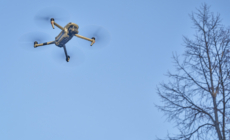-
‘Christmas Adam’ Celebrations on Dec. 23 Spread in Some Parts of the U.S. - 8 mins ago
-
Famous San Pedro fish market signs 49-year lease to stay in West Harbor - 18 mins ago
-
Phillies Acquire Jesus Luzardo From NL East Rival Marlins: Reports - 28 mins ago
-
Removing Carbon From the Sky Could Be the Next Climate Gold Rush - 52 mins ago
-
California’s rush to regulate AI has a 1st Amendment problem - 59 mins ago
-
Face of Shelter Dog Spending His Fourth Christmas Alone Breaks Hearts - about 1 hour ago
-
The Enigma of Bob Dylan - 2 hours ago
-
Toddler’s Guilt Trip Works to Perfection on Grandma: ‘Caved In Too Quick’ - 2 hours ago
-
Newsom reads the election returns and heads to red California - 2 hours ago
-
‘SNL’ Takes on New Jersey Drones: ‘Dumb Theories’ - 2 hours ago
North Korea’s Kim Personally Leads ‘Actual War Drill’
Supreme Leader Kim Jong Un on Wednesday oversaw North Korean troops as they demonstrated their “actual war capability.”
Kim impressed on the soldiers the importance of intensifying such “actual war drills” in preparation to “contain the constant threat of the enemies with overwhelming force,” according to state media.
The North Korean war game coincided with Freedom Shield, an annual drill jointly kicked off this week by South Korea and the American forces based there, with a focus on countering nuclear operations. North Korea said the exercise is a provocation and warned last week that Washington and Seoul would “pay a dear price.”
Newsweek reached out to U.S. Forces Korea with a written request for comment.
During Kim’s visit to the training grounds, reportedly in the country’s western region, he remarked that the site closely resembled the conditions of a real war. He commended the combatants for their “strong revolutionary spirit and the indomitable fighting spirit.”

Rodong Sinmun
Kim stressed that the Korean People’s Army must adapt to the fast-changing landscape of modern warfare.
The 40-year-old leader also joined a photo session with soldiers. State media said they “pledged their intense loyalty to Kim Jong Un, who guided their training and gave them great trust, encouragement and matchless courage and pluck, and hardened their resolve to fully discharge their honorable duty.”
The demonstration took place against a backdrop of decades-high tensions on the Korean Peninsula.
Kim’s regime’s recent signaling suggests it has sidelined the prospect of de-escalation after a brief period of warming ties in the late 2010s.
The North’s steadily progressing nuclear and ballistic missile programs and recent live fire drills near South Korean islands have added to the South’s anxieties.
In November, the North launched its first surveillance satellite in defiance of United Nations Security Council resolutions. Pyongyang said the move was necessary for national defense and has vowed to send up three more this year.
After the launch, Seoul said it was suspending parts of a military agreement, reached in 2018 to reduce the risk of conflict, and announced it was resuming aerial surveillance along the Military Demarcation Line separating the uneasy neighbors.
In response, North Korea exited the pact entirely. The one-party state in January changed its constitution to label South Korea as the “principal enemy” and has been dismantling symbols of North-South cooperation.
The North Korean embassy in Beijing and the South Korean embassy in Washington, D.C., did not immediately respond to written requests for comment.
Uncommon Knowledge
Newsweek is committed to challenging conventional wisdom and finding connections in the search for common ground.
Newsweek is committed to challenging conventional wisdom and finding connections in the search for common ground.
Source link
















